The Leyendecker Brothers credo to "buy more than you can afford -- if every day you have to work to save yourself from ruin, every day you'll work" would, inevitably, lead to tragedy.
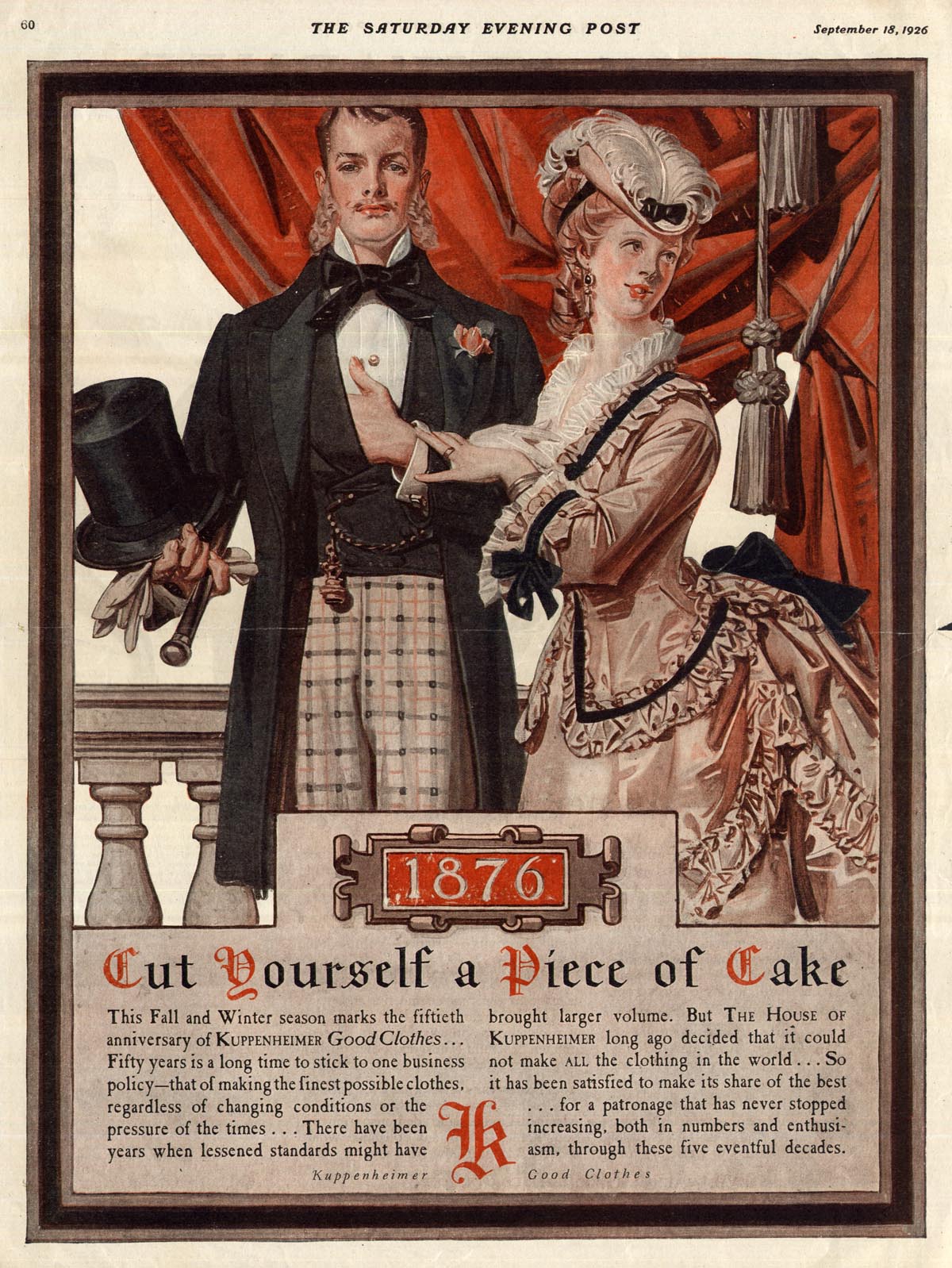
Roger T. Reed describes "the culmination of their profligacy" in his essay on the Leyendeckers:
"... the building of a chateau in New Rochelle, New York, with separate wings for each studio, elaborate landscaping with fountains and fish pools and a staff to take care of it all."
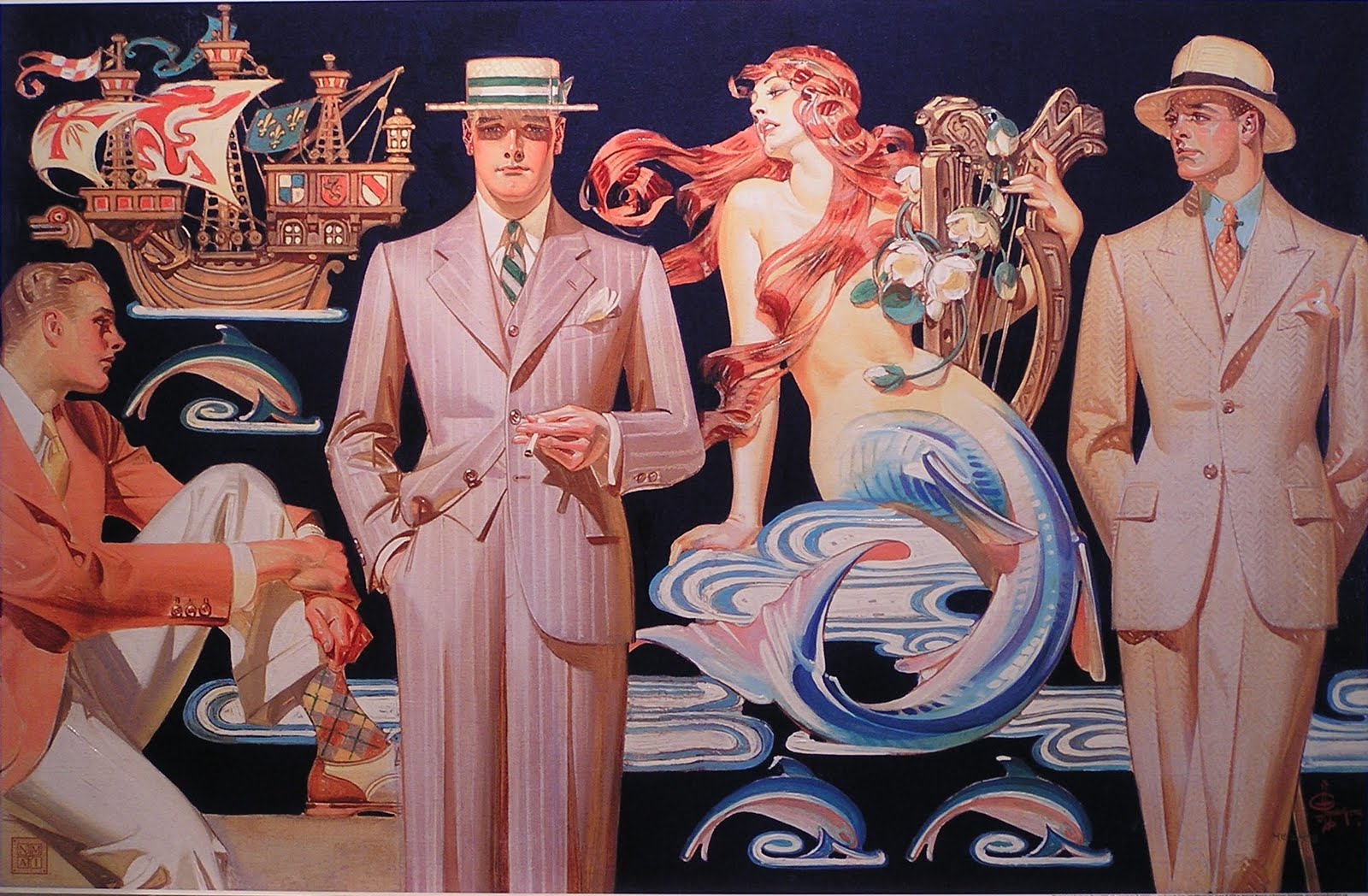
Reed continues, "When J.C. raised the bar higher than Frank could reach, the destructive side of the credo emerged. How could Frank ever catch up while sharing overexpenditures at J.C.'s rate? Frank suffered migraines and started taking drugs... eventually this competitive bond between the brothers split them apart."
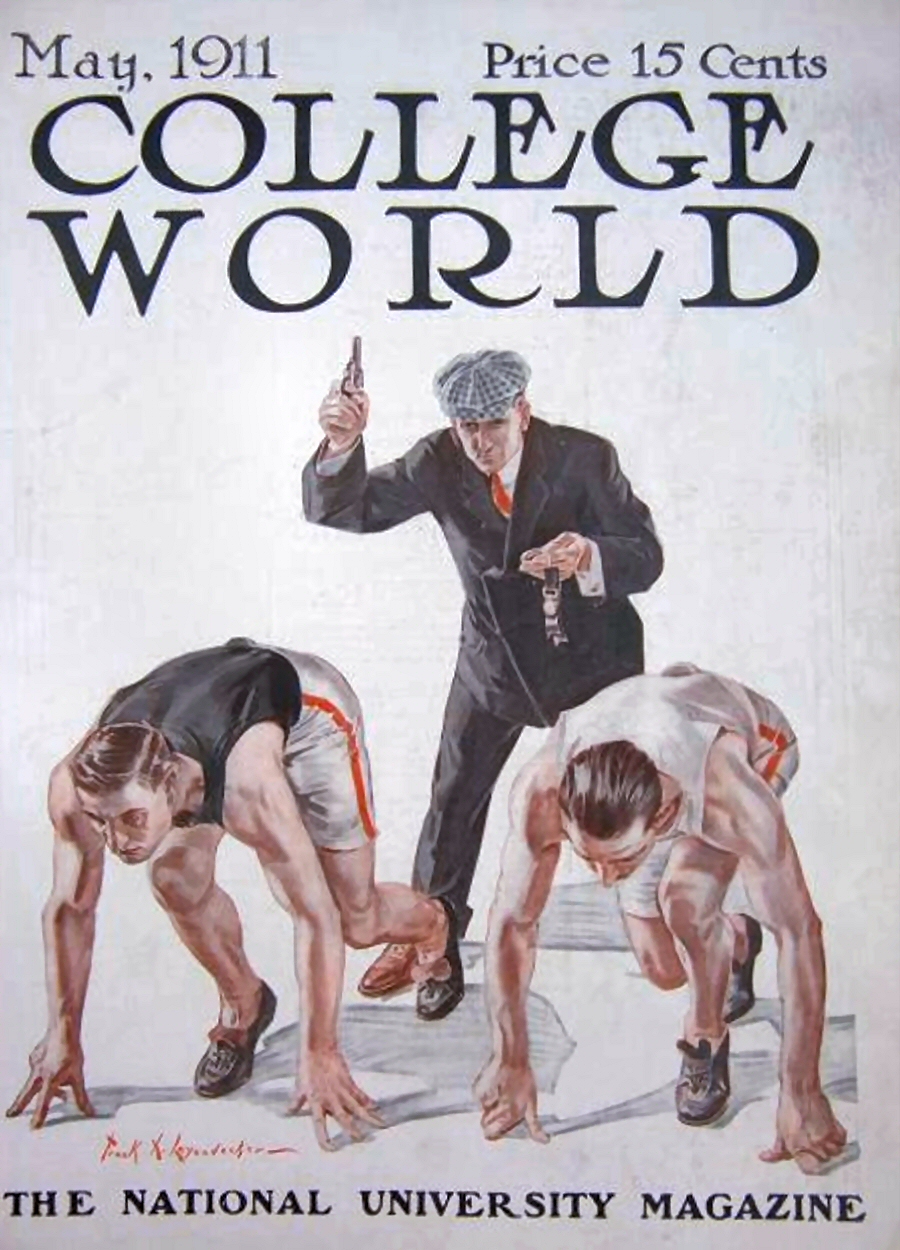
"By 1921, there was trouble brewing at the mansion, much of which can only be guessed at. It appears that Frank could not keep up with the expenses and was tiring of the rat race he and J.C. had created. When [J.C.'s manager, Charles] Beach began to 'help' Frank with his share of the bills, Beach began to own Frank."

At one point J.C. was apparently going to get married...
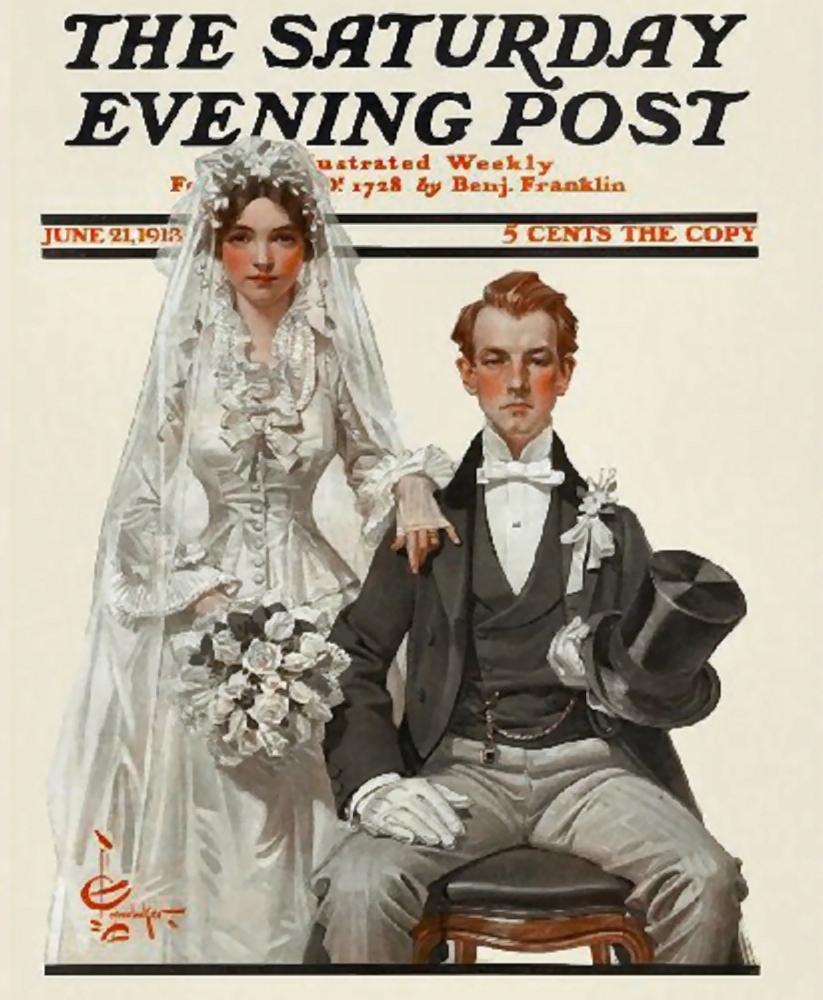
... but Reed suggests that this may have been an attempt by J.C. to end his relationship with Charles Beach. However Beach "promptly threatened to publicly reveal J.C.'s homosexuality."

As for Frank Leyendecker, "instead of having the leisure to explore the fine arts work he wanted to do, Frank got thrown out of the mansion along with J.C.'s sister Augusta."

Depression, drugs, lacklustre and low-paying work in a studio above a garage must have all contributed to Frank's untimely death at age 46.

Reed writes that it was "probably a suicide. At the Chateau, the subject of Frank was thenceforth taboo."
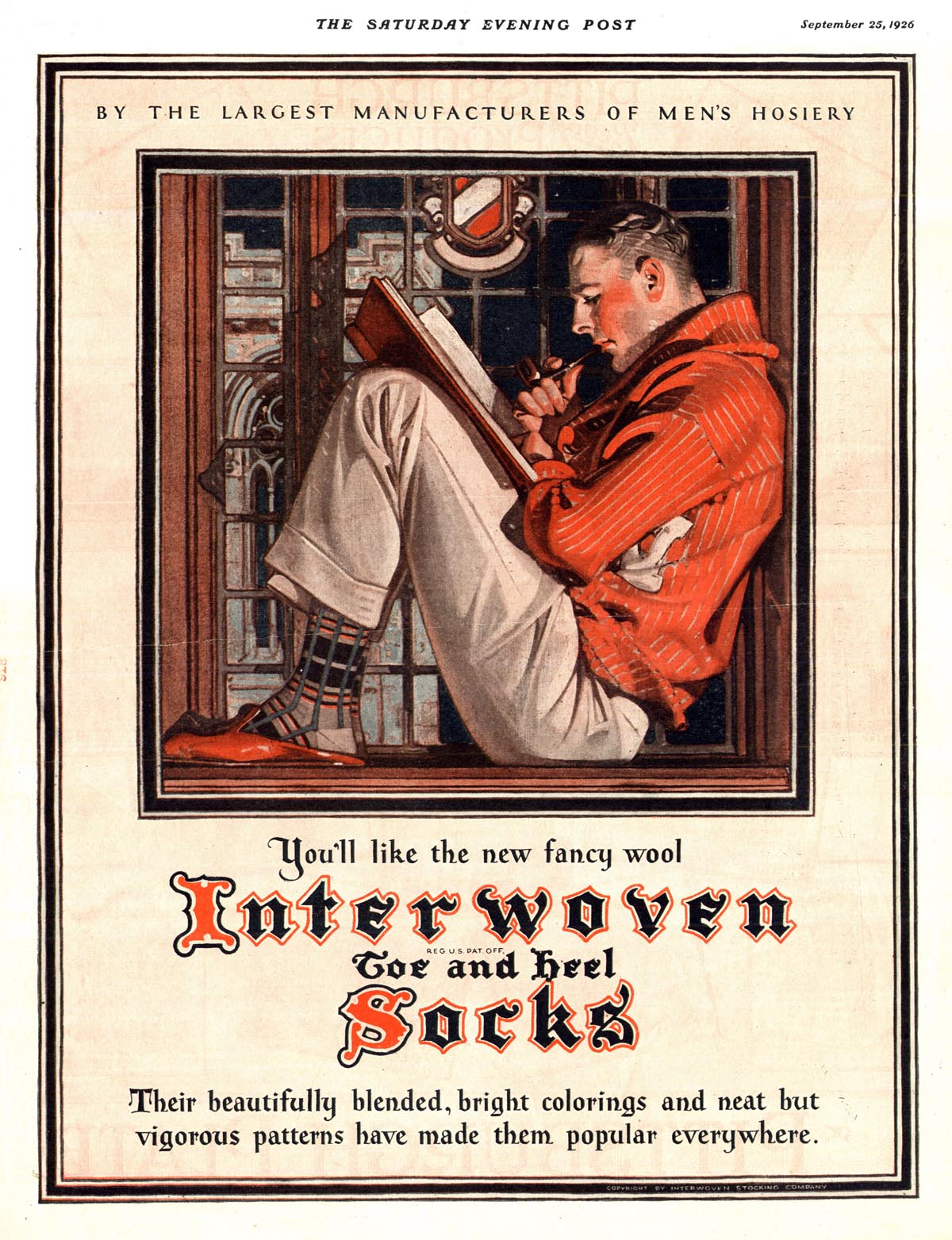
Reed describes how, despite what must have been a difficult emotional time after Frank's death, J.C.'s output never slowed. His work did, however, begin displaying "a black humor" and "a sharper edge." When The Saturday Evening Post began printing its covers in full colour in 1926, J.C. seems to have been at last "pulled out of his funk," according to Reed.
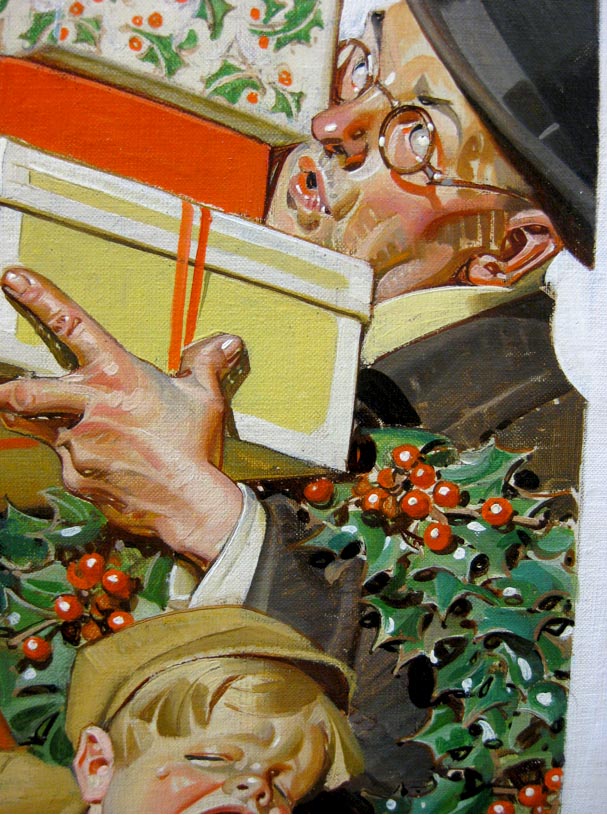
"J.C. celebrated with startlingly colorful slices of American life..."
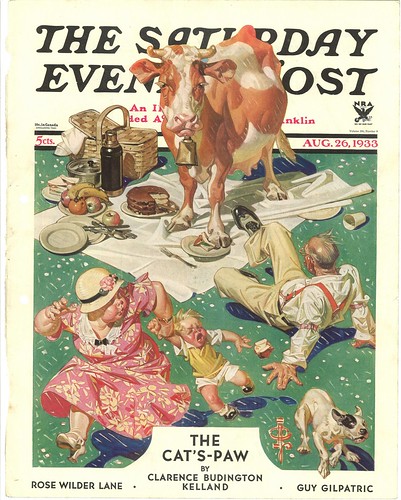
... and "In the thirties ... J.C. hit his perfect stride, and his covers practically strut with fresh new ideas executed with conviction and... amusing twists of humor."
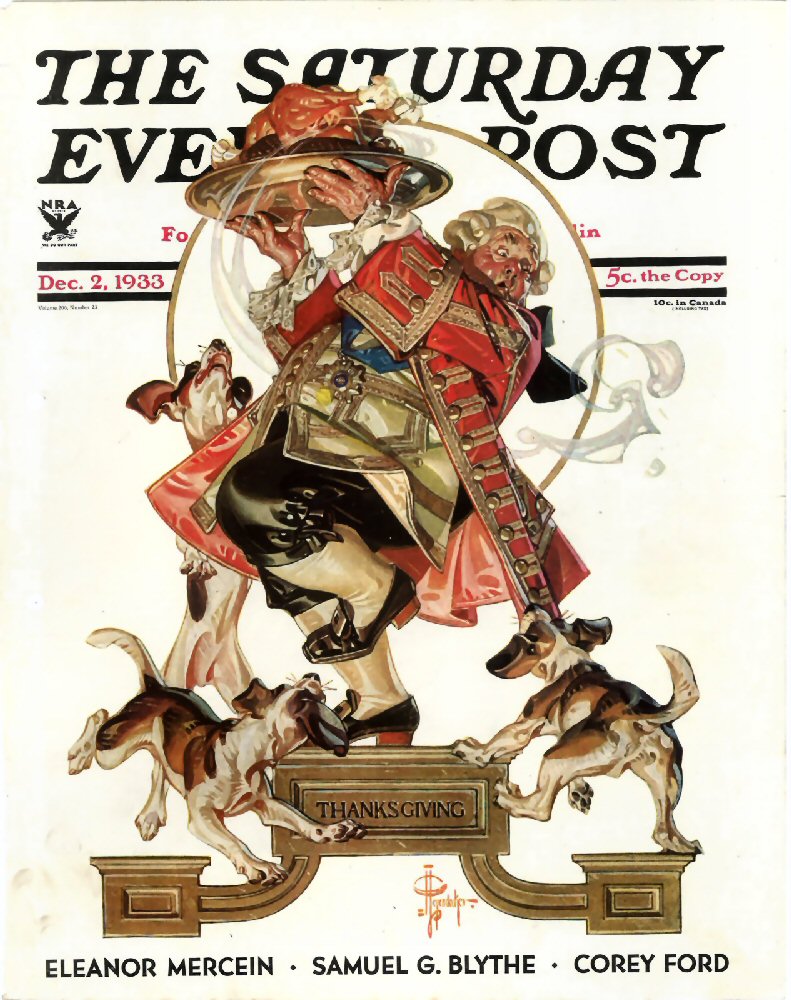
But when the Post stopped assigning J.C. covers in the late 1930s, he found himself, in his late '60s, having to hustle for work. "Several excellent series of advertising paintings for new clients were the result of this hardship, however," Reed tells us.
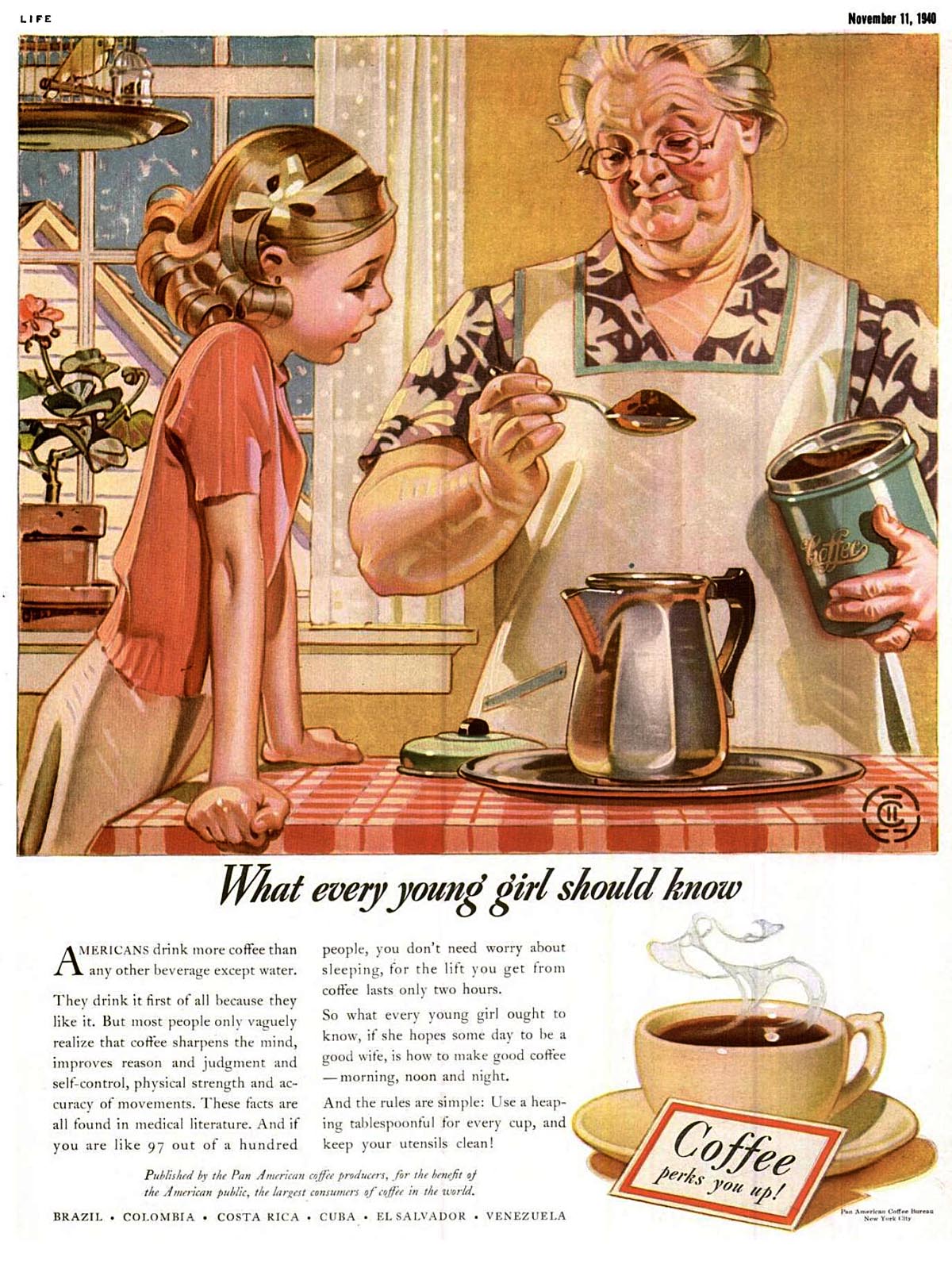

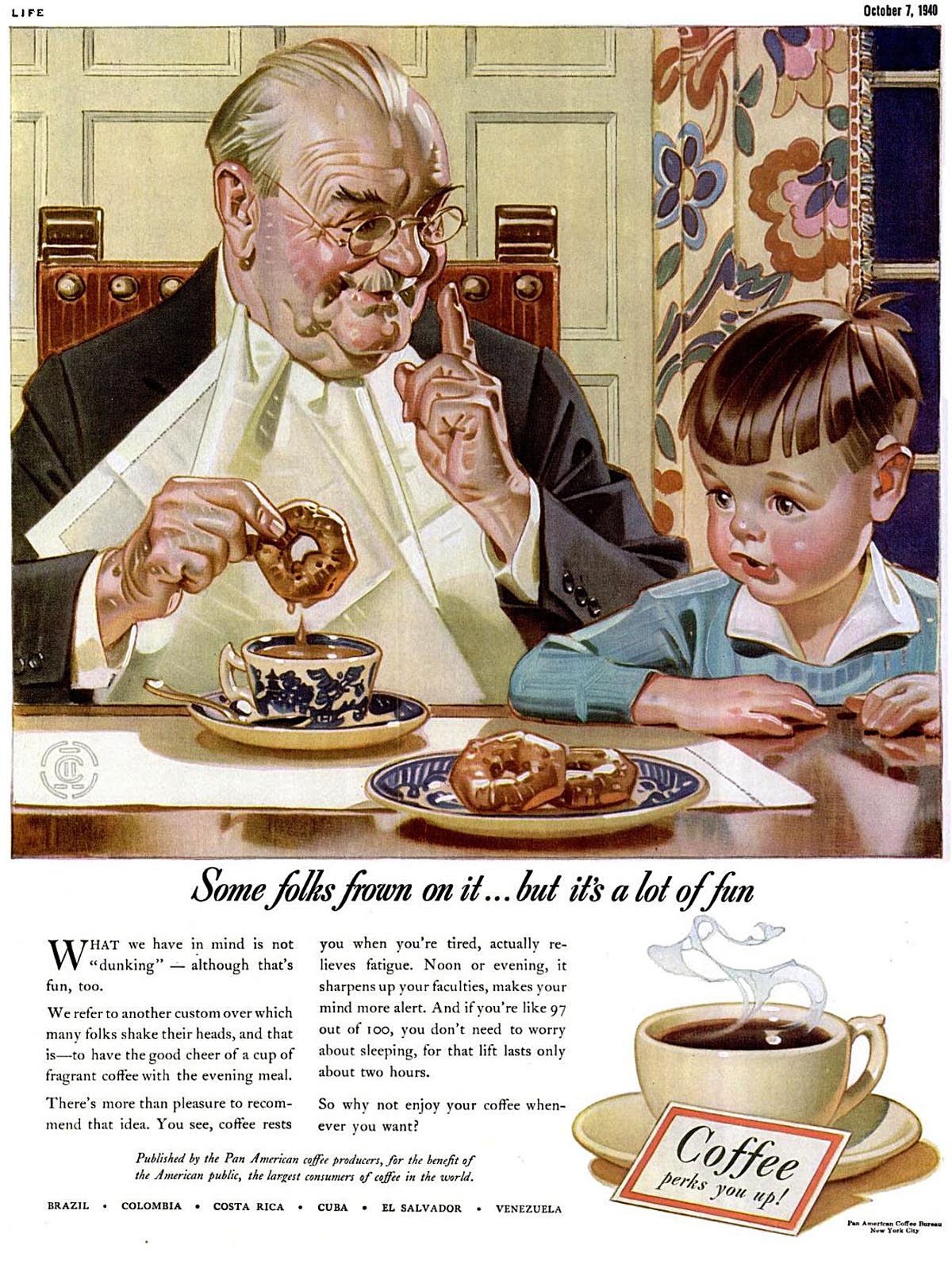
After a lifetime of living beyond his means, of fearing the truth about his sexuality might be revealed, of causing the estrangement of his beloved brother (and quite possibly contributing to his early death), of being tied to Charles Beach (whom Norman Rockwell described in his autobiography as a "bloodsucking parasite"), J.C. Leyendecker died of a heart attack in 1951, unable to leave any savings for his manager and life partner.
According to Reed, "Beach was reduced to selling J.C.'s sketch canvases to pupils at the Art Students League for drinking money."

Lucky for us, because otherwise these would not have survived - - J.C. had wanted his sketch canvases destroyed.
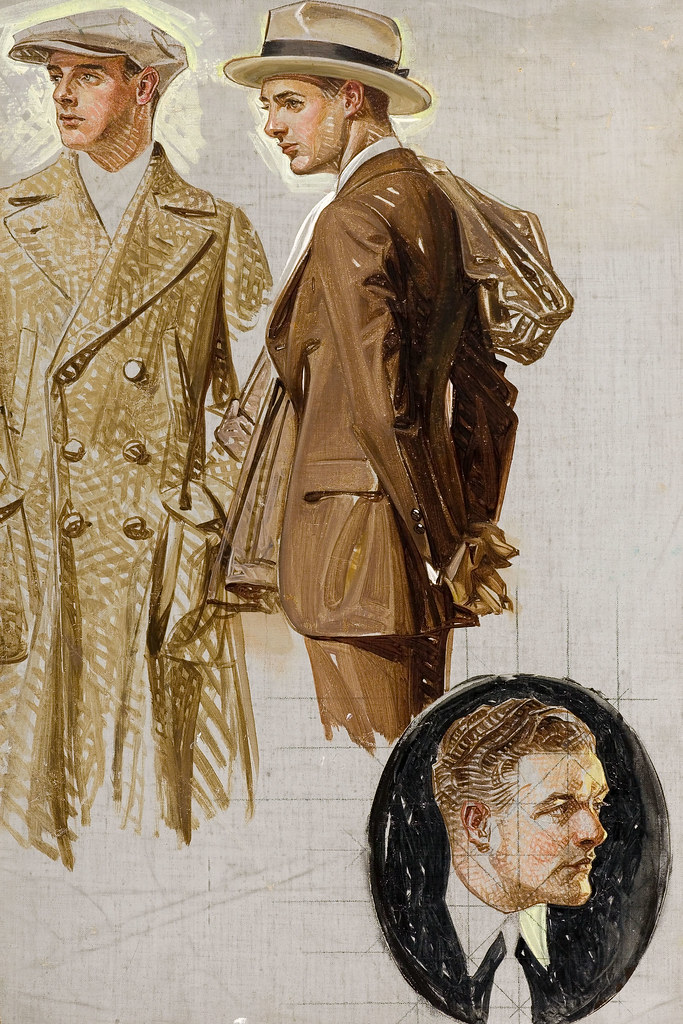
After his death, Charles Beach and J.C.'s sister, Augusta, sold the originals of his Saturday Evening Post covers at a yard sale for $75 each...

... and, Reed tells us, an area art supply shop had stacks of J.C.'s sketches available for just a dollar a piece. They languished for years as there was little interest from the store's patrons.
* Thanks to Roger T. Reed of the Illustration House for allowing me to excerpt from his essay on J.C. Leyendecker. The essay is © Roger T. Reed and originally accompanied the '97-'98 J.C. Leyendecker retrospective at the Norman Rockwell Museum.
* Many of today's images were sourced from the Leyendecker Group on Flickr






0 comments:
Post a Comment